
Halitosis can interfere with an individual’s self-esteem. In some cases, it can be uncomfortable or embarrassing. Halitosis is the condition of bad breath (chronic), mainly caused by poor hygiene and dry mouth of the person. It is also caused due to illness of other body parts like stomach/ gastric reflux, diabetes, and liver or kidney diseases.
Everyone should understand the importance of oral hygiene and prioritize their oral health. Regular dental checkups and dental cleaning is recommended for people suffering from halitosis. Teeth cleaning at regular intervals of 4 to 6 months is a treatment to maintain oral health care and prevent Syria or gingivitis. Halitosis is not an infectious disease. However, it still causes equal uneasiness for the individual and anyone who encounters that individual.
Top six causes of bad breath
- Bacteria- Sulphur-producing bacteria cause halitosis or the problem of bad breath. These bacteria are found on the outer surface of the tongue. And in the throat of the person with halitosis. The smelly breath due to these bacteria is caused due to the production of odorous volatile Sulphur compounds. These bacteria are Gram-negative bacteria.
- Inadequate dental hygiene- poor oral hygiene is the most common cause of bad breath. When anyone eats a meal, food debris may get trapped between the teeth and in other spaces in the mouth. These food particles then cause bacterial growth, resulting in tooth decay and bad breath. Tonsil stones are a combination of food particles, bacteria, and mucus. These small stones get trapped in the structure of a tonsil, resulting in bad breath. Most tonsil stones can be removed with a saltwater rinse or Waterpik. However, if it is a common occurrence, it is best to speak to your family doctor or dentist.
- Periodontal disease- Periodontal disease is caused by the infection and inflammation of the gums and bones that form the teeth’ socket. In the initial phase, the condition is more like gingivitis. In the case of gingivitis, gums swell, bleed, and become red. The grip of teeth becomes loose, creating gaps between gum and teeth. In severe conditions, the teeth can fall after the roots of teeth become weak. Periodontal disease is understood as one of the major threats to dental health.
- Dry mouth- Saliva is vital for moistening the mouth and neutralizing the acids produced by the plaque. Lack of saliva in the person’s mouth can cause dryness and bad breath. This condition of dry mouth is known as Xerostomia. The salivary glands are not producing an adequate amount of saliva. Acids, plaque, dead cells, and other smell-causing agents that remain untreated or stagnant can cause foul breath and possible damage to overall health.
- Respiratory tract infections- Respiratory bad breath is caused due to some short-term infections like bronchitis, pneumonia, sinusitis, and other respiratory disorders.
- GERD and other gastrointestinal issues- Gastroesophageal reflux disease (GERD) is a chronic disease caused by the rise of acid in the stomach in the esophagus. GERD is caused along with other symptoms due to disbalance in the gastrointestinal fluid.
Natural solutions to bad breath
There are many natural solutions for bad breath. You may want to try some of the at-home methods discussed below:
- Snack on celery. This crisp vegetable is enriched with fiber. It helps to fight bad breath by enhancing saliva production. Saliva naturally fights harmful bacteria and neutralizes acids.
- Green tea is abundant in antioxidants that help with bad breath by preventing it from multiple causes.
- Waterpiks is a natural mouth moistener that helps prevent bad breath by washing away stuck food and the harmful bacteria present in the mouth.
- Chew on a small handful of anise seeds. Anise seeds can be boiled and taken in tea form as well. Anise seeds are great for digestive issues or can be used as a natural mouthwash. Many compare the taste to sweet licorice.
- Parsley is a folk remedy for smelly breath and has been used for many years. It has a deodorizing effect because of its fresh aroma and high chlorophyll content. Parsley can also fight the smell caused by sulfur-producing bacteria. Add fresh parsley to your meal or green juice.
- Zinc vitamins or supplements can also help in fighting bad breath as the zinc vitamin can help fight against the sulfurous compounds present in the mouth.
- Natural Probiotic supplements or probiotic foods like Lactobacillus and Bifidobacteria can help in reducing the bad breath and assist with digestive issues that contribute to breath.
- Saltwater rinse can be very helpful to fight against the foul odor coming from the mouth.
Although these natural solutions are beneficial, it is always best to speak to your dentist before incorporating them to treat bad breath. Bad breath can be a sign of an underlying issue.
Bad breath prevention
- Maintaining oral hygiene is critical for fighting against bad breath. It is recommended to brush twice a daily or after each meal. It is also recommended to maintain overall health and drink plenty of water frequently throughout the day. A helpful tip is to use mouthwashes before sleeping so that you don’t sleep with the bacteria trapped in the mouth.
- Flossing or scraping teeth gently with care to remove plaque from the surface of teeth is advised to be done daily after every meal. This will help remove food debris, prevent food from sticking and prevent harmful bacteria from forming in the gaps of teeth.
- Keep gums healthy because healthy gums will keep teeth safe and will also prevent bad breath by creating a slick surface; food will have a difficult time sticking.
- Avoid dry mouth and keep saliva moving in the mouth to prevent the growth of sulfur-producing bacteria in the mouth. Healthy food and water also help maintain the oral health of the person.
- If anyone is a smoker, they should quit smoking as soon as possible. Smoking and tobacco are the main enemies of oral health issues, bad breath, and other health issues. It is recommended to speak to your family doctor and dentist if you have difficulty quitting.
- If you have any oral-related problems, then you should visit your dentist. Scheduling future appointments will help you never to forget a checkup.
Bad breath is very embarrassing and can indicate deeper health issues. At any stage of life, whether someone has a severe case or is just unsure what to do about their bad breath, always consult a dentist.
Recent Comments
Simrit Bio
Simrit has been working at Torbram Dental since 2001. She started her career with Assisting/Treatment co-ordinating and then moved on to becoming the Hygiene Co Ordinator in 2005. In 2012 she took on a new role as the Marketing Director. Though she loved being the Marketing Director, in 2015 she became the Office Manager of Torbram Dental. She completed her Level 1 Dental Assisting program with Career Canada in 1996 and then went on to complete her Level II Dental Assisting Diploma with Southwestern Medix in 1999. That is when she received NDAEB Certification. Simrit has been and still is an active member of the Ontario Dental Assistants Association since 2000. She enjoys hiking and traveling with her husband and two kids and loves to explore new restaurants, especially high-tea venues.
This will close in 0 seconds
Jessica Bio
Jessica, one of our receptionists, is one of the smiling faces you see when you arrive at the office. She graduated with honours from Medix College with a diploma as a Level 2 Dental Assistant. When she is not happily helping our patients, Jessica enjoys spending quality time with her friends and family, going to church on Sunday mornings, gardening and going on hikes.
This will close in 0 seconds
Naudia Bio
Naudia has been working at Torbram Dental for many years and is a valued member of our administrative team: as a dental receptionist and in our marketing team . She graduated from Everest College with honours level 1 and 2, with a diploma in Dental Assisting. Naudia is always there for our patients, making sure that they receive the care and attention they deserve. When not at the office, she enjoys spending time with family and friends, cooking and indulging in civil court TV shows.
This will close in 0 seconds
Ramandeep Bio
Ramandeep has been a part of Torbram Dental for the past 10 years as certified dental assistant. She obtained her level 1 certification from Everest college in Brampton in 2013, and then her level 2 certification in 2014 from Medix college. Her career path through the clinic has been recognized by staff at all levels who admire her work ethic and dedication to million dollar smiles. In her spare time, Ramandeep enjoys cooking and gardening, and spending time with her husband and 2 kids.
This will close in 0 seconds
Sana Bio
Sana is a valued member of our dental hygiene team. In 2008 she completed her education at George Brown in Dental Assisting and in 2016 she earned her diploma in Dental Hygiene from the Canadian Academy of Dental Health and Sciences. Sana has been working in dentistry since 2008 and enjoys taking care of our patients and helping them with their oral health. She is married and is busy with her 2 young children. In her spare time, Sana enjoys going out with the family, trying out new places to eat and is looking forward to travelling with them in the future.
This will close in 0 seconds
Sanaria Bio
Sanaria has been working at Torbram Dental for many years as a valued member of our Dental Assisting Team. She completed her level 2 dental assisting certification and previously obtained a degree in Education and worked as a quality control officer in the pharmaceutical industry. When not at work Sanaria loves to bake and cook. She also loves story time and enjoying the outdoors with her children. She always sees the positive side of life, believes that nothing is impossible and that if you set a goal and work at it, that you will make your dreams come true.
This will close in 0 seconds
Carrie Bio
Carrie has been working at Torbram Dental since 2001. She graduated from George Brown College in 1998 with a Dental Assistant Diploma and continued to further her education by completing a Dental Hygiene Diploma in 2001 at Durham College. Carrie is a highly trained and experienced Registered Dental Hygienist who continues to learn and grow by updating her knowledge to provide her clients with the best Oral Health Care techniques and information. Carrie is passionate about Dentistry and is known for her gentle and compassionate manner. She feels strongly about building lasting relationships and trust with her clients to help them understand that good Oral Health leads to good Overall Health. Carrie enjoys travelling, dabbling in decorating and a good Netflix series in her time off. Carrie resides in Halton Hills with her husband and two children.
This will close in 0 seconds
Daniela Bio
Daniela's interest in Dentistry began in Gr.6 when she wrote a speech entitled "My Life as a Toothbrush".
A Registered Dental Hygienist with 22 years of clinical experience, Daniela still has a great passion for her career. The most rewarding aspect for her is building lasting relationships with her patients, and seeing them through to a healthier smile.
Her thorough yet gentle touch will ensure a comfortable visit every time.
Daniela is a total Foodie and loves to cook and enjoys all types of cuisines. She loves Florida, Cruises, organizing things, and most of all spending time with family and friends.
This will close in 0 seconds
Stephanie Bio
Stephanie Enjoys getting to know all new patients at Torbram Dental and catching up with long standing Patients. Stephanie enjoys spending quality time with her family. One of her favorite things to do with her daughter is teach and play the piano. Stephanie likes going on walks with her husband and enjoys spending as much time with him as he is an Active Member of the Canadian Army. On Sundays, Stephanie enjoys going to Church and looks forward to Sunday Dinner with her entire family. Stephanie's Favorite thing to do to start her day right is head to her local Starbucks and Grab her favorite drink, an iced black tea with light lemonade on warm days and a blonde vanilla latte on those cold winter days.
This will close in 0 seconds
Aalisha Bio
As a dedicated Dental Hygienist at Torbram Dental, Aalisha brings recent knowledge and experience to ensure the best oral health for our patients. She holds a Diploma in Dental Hygiene from the Toronto College of Dental Hygiene and Auxiliaries and has further enriched her education with a Bachelor of Science from the University of Waterloo. Beyond her professional qualifications, Aalisha has a zest for life that extends beyond the dental chair. She cherishes quality time with family and friends, thrives on outdoor adventures, and has a passion for hiking and water-based activities, especially during the sunny summer days. She is an avid traveler, exploring tropical paradises and historic destinations while immersing herself in diverse cultures and indulging in delicious culinary experiences."
This will close in 0 seconds
Supreet Bio
Supreet was born and raised in Punjab, India and came to Canada in 2016. She graduated from Sheridan College as an Environmental Lab Technician but later decided to change her career to dentistry. She completed her Level I and II Intra-Oral Dental Assisting course from George Brown College and graduated in 2023. In July 2023, Supreet joined the team at Torbram Dental where she enjoys working. In her free time, she loves to read books.
This will close in 0 seconds
Childs Oral Health

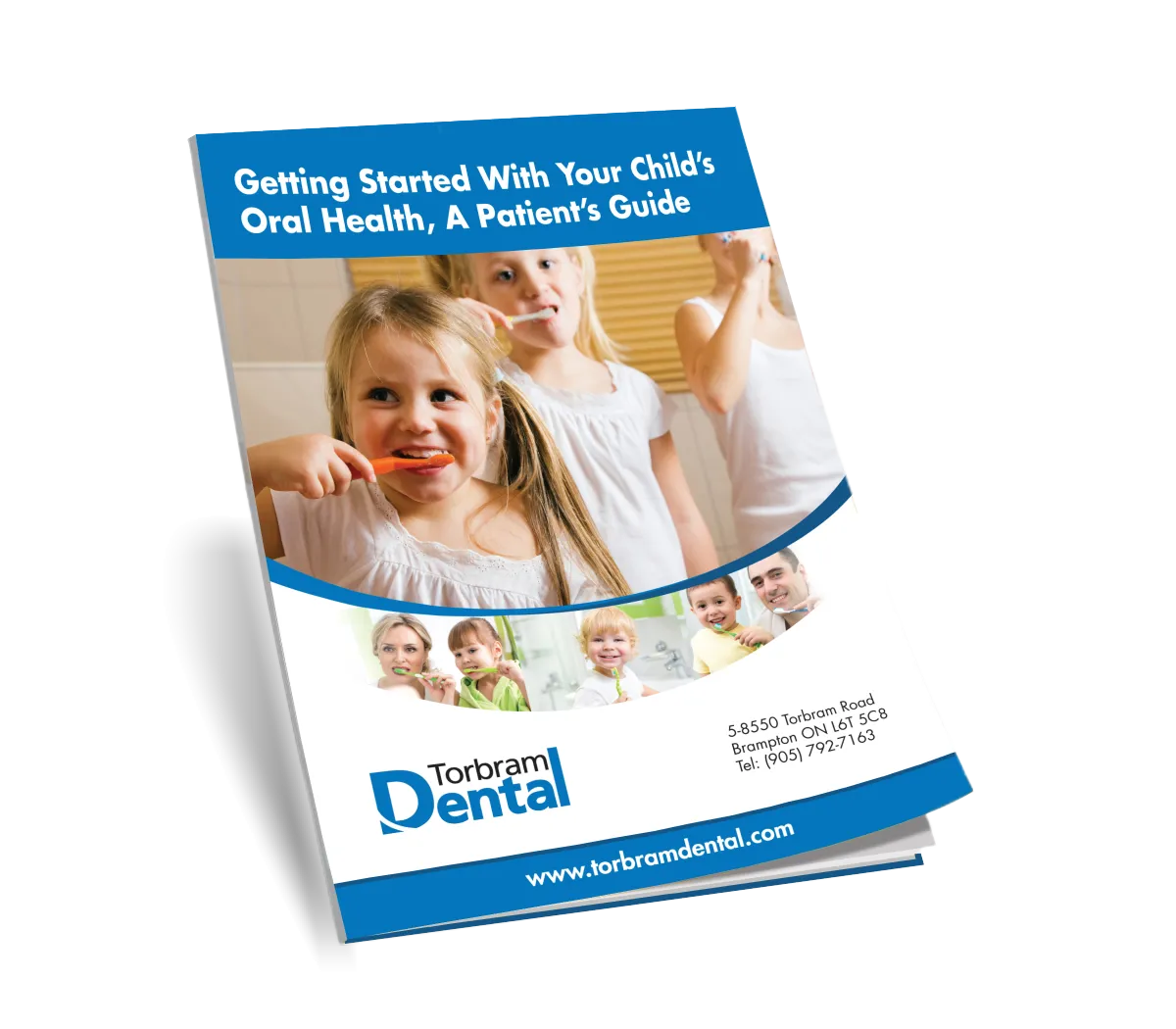
Enter your information below.
We will email your copy right away.
This will close in 0 seconds
Cosmetic Dentistry

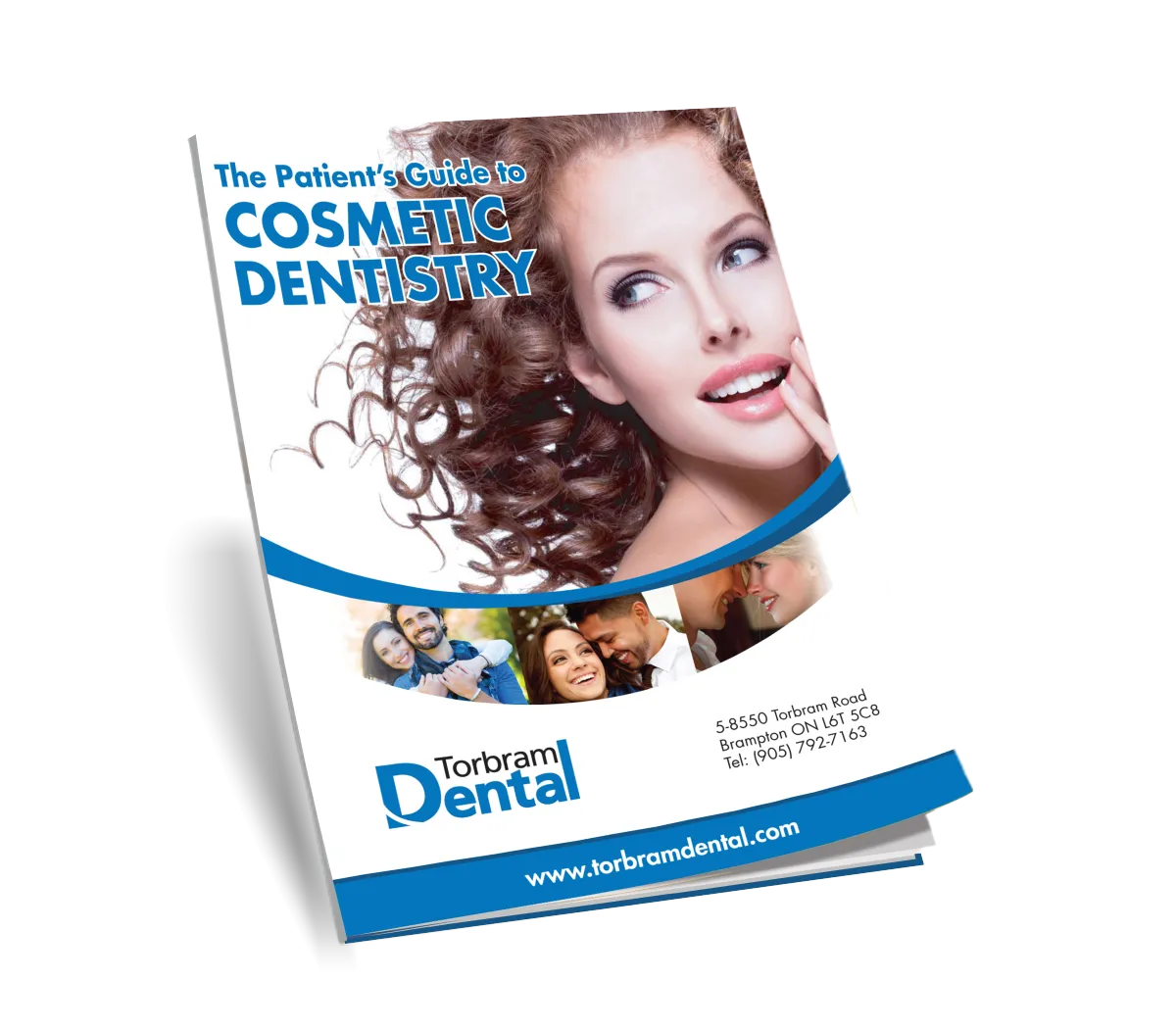
Enter your information below.
We will email your copy right away.
This will close in 0 seconds
Implant Dentistry

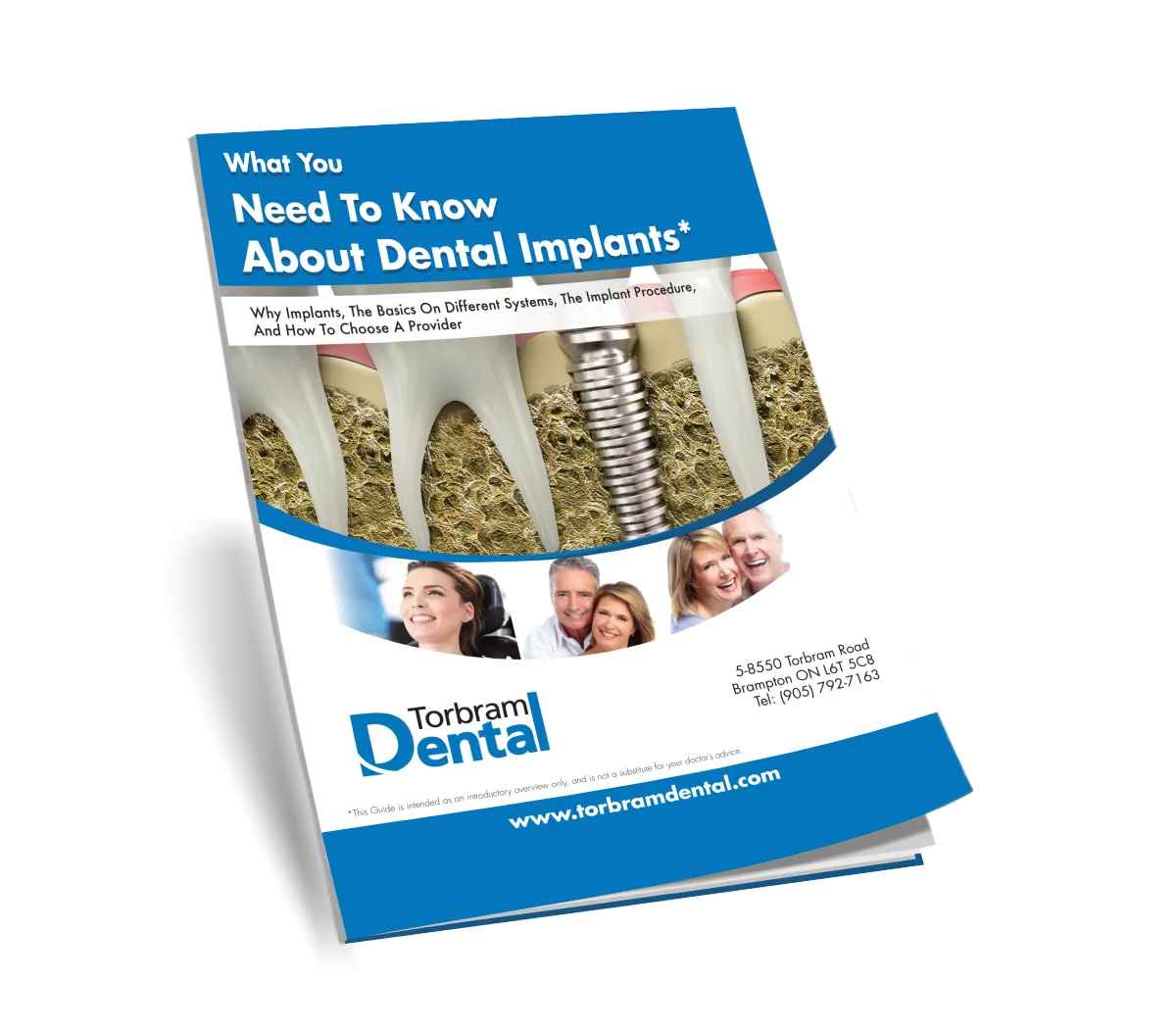
Enter your information below.
We will email your copy right away.
This will close in 0 seconds
Orthodontic Dentistry

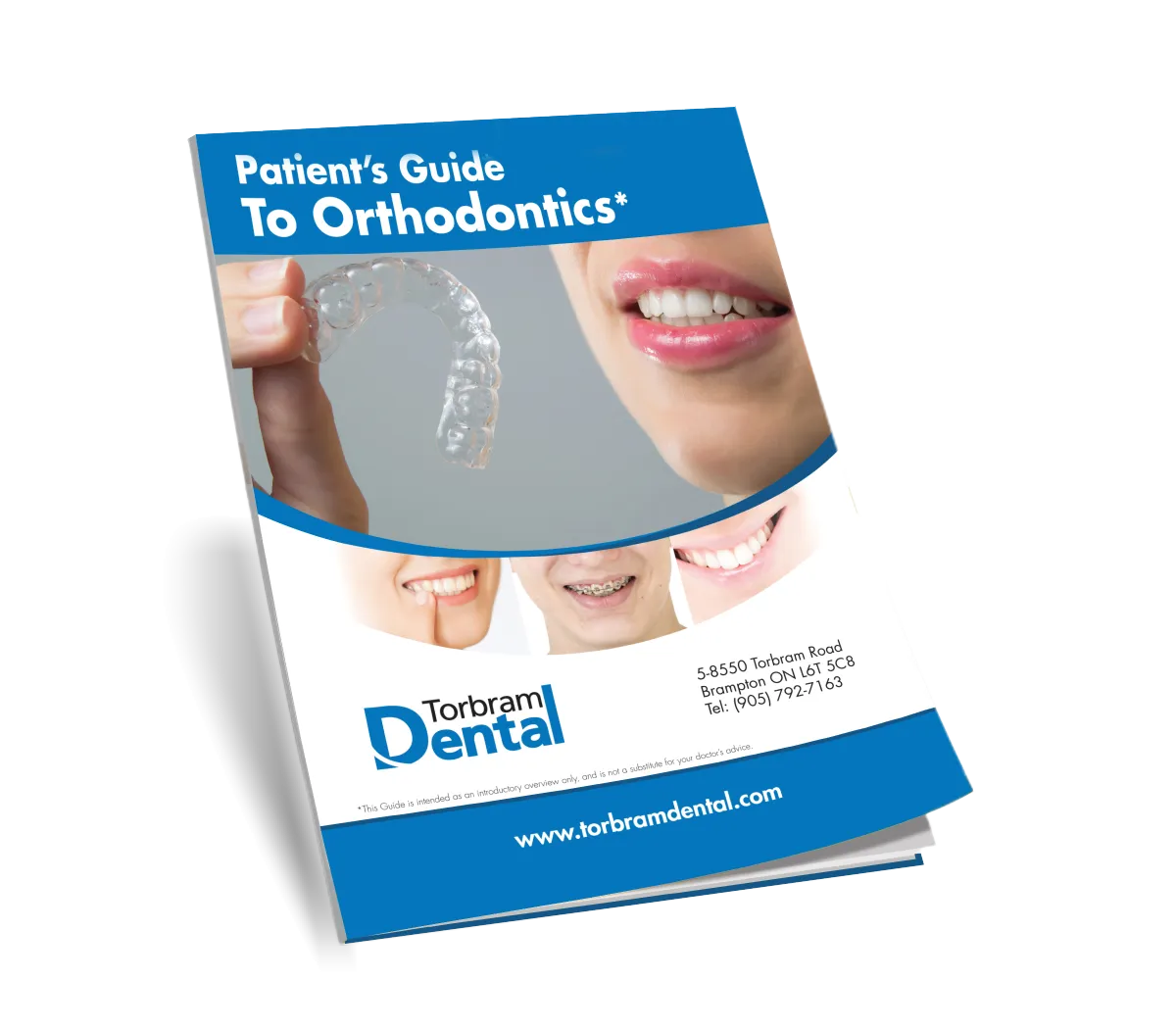
Enter your information below.
We will email your copy right away.
This will close in 0 seconds
Invisalign

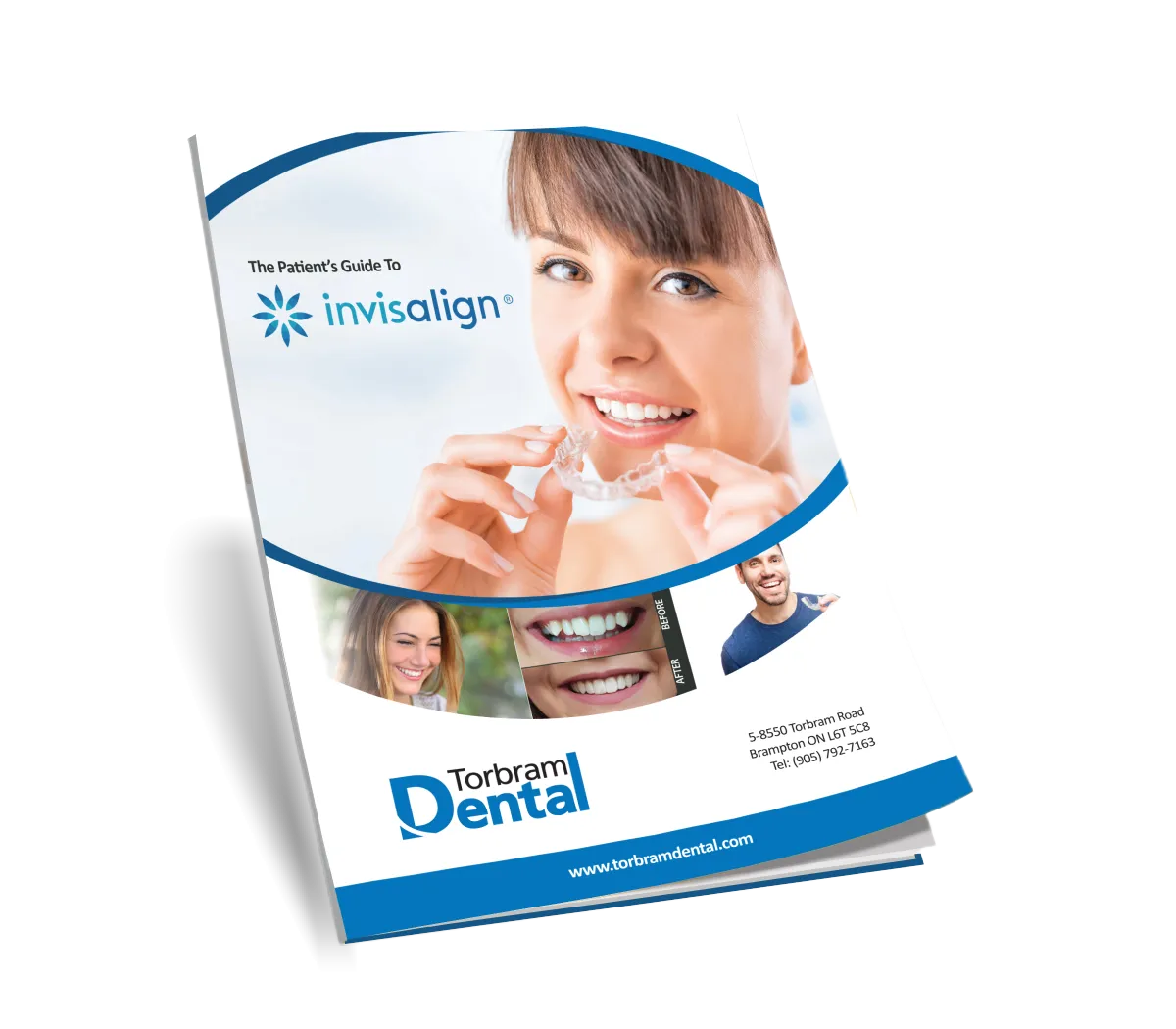
Enter your information below.
We will email your copy right away.
This will close in 0 seconds
Anxiety Free Dentistry

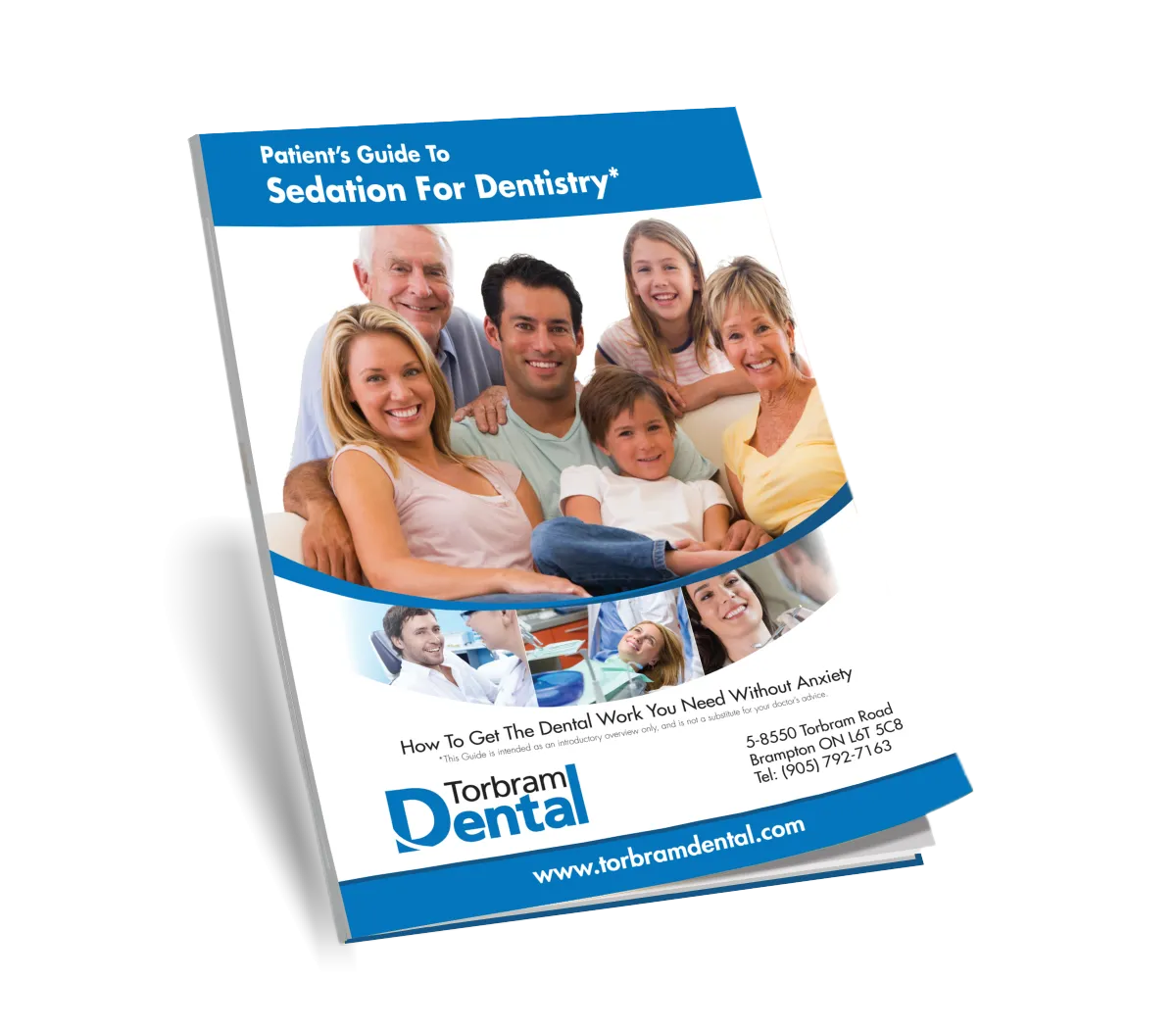
Enter your information below.
We will email your copy right away.
This will close in 0 seconds
Wedding Day Smile


Enter your information below.
We will email your copy right away.
This will close in 0 seconds
